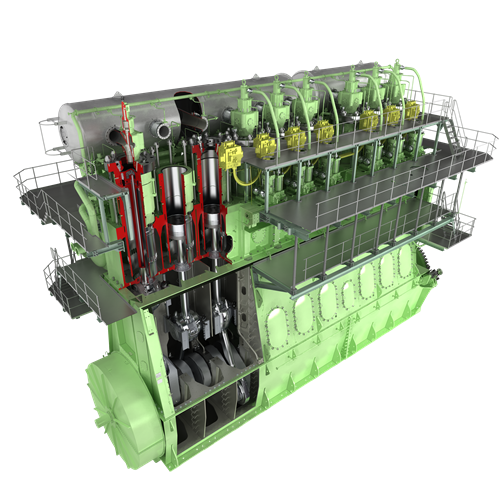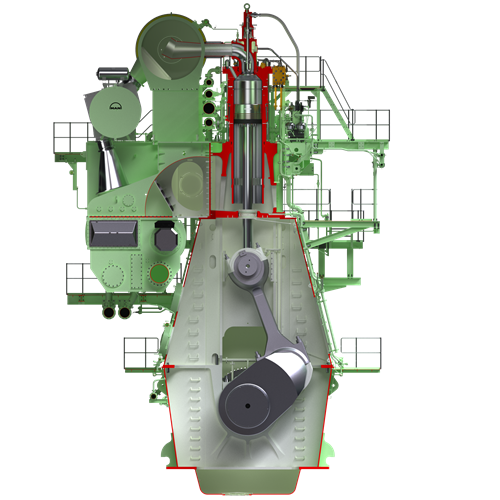Within our project, heat sources and heat sinks available in the ship energy system will be investigated and possibilities for waste heat recovery will be identified. New ORC cycle layouts harvesting heat from and rejecting heat to multiple heat sources and heat sinks will be developed.
For the more promising solutions, guidelines will be provided with respect to the design of the ORC unit, including its components and control strategy. A new method for the combined optimization of main engine tuning and ORC unit will be developed, aiming at minimising the voyage fuel consumption while complying with NOx emission and energy efficiency legislations. A unique experimental facility comprising a diesel engine, an ORC unit and a refrigeration machine will be constructed at DTU Mechanical Engineering, enabling the practical testing of the technology and the validation of the numerical models.
The findings, or deliverables of our project will provide essential knowledge about how to design and operate highly efficient machinery system including waste heat recovery for ships in general, and for LNG-fuelled ships in particular, complying with emission and energy efficiency legislations. This applies to retro-fit as well as new-building applications. In addition, the results will strengthen DTU’s capabilities of educating qualified engineers with competences suitable for the Danish maritime industry. The experimental facility will be the first of its kind, and it can be used for a range of future maritime activities involving waste heat recovery systems of combustion engines, and for teaching purposes at DTU.
The results of the project will be disseminated through numerous channels including Skibsteknisk Selskab and Green Ship of the Future, a project webpage, Danish maritime media, press releases, courses at DTU, and scientific papers.
 |
 |
MAN B&W ME-GI, gas engine. Image: MAN Diesel & Turbo.
|